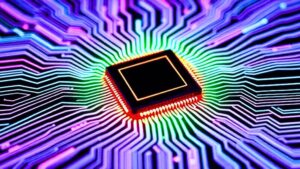Science has long been the playground of inquisitive minds, determined to explore the limits of human knowledge. However, the history of science is sadly marked by a tendency to minimize or ignore the contributions of women scientists. Yet exceptional women have played a vital role in the advancement of science through the ages. In this article, we’re going to shine a light on some of these unsung heroines, pioneers who have shaped the world of research and discovery.
Marie Curie: The Pioneer of Radiactivity
When talking about famous female scientists, Marie Curie’s name is often one of the first to come up. This Polish physicist and chemist is best known for her pioneering research on radioactivity. In 1903, she became the first woman to win a Nobel Prize, shared with her husband Pierre Curie and Henri Becquerel, for their work on radioactivity. In 1911, she received a second Nobel Prize,
this time in chemistry, for her discoveries on radium and polonium. Marie Curie paved the way for modern nuclear medicine and countless scientific advances
Rosalind Franklin: The Key to the Double Helix
In the 1950s, a quiet but brilliant British researcher named Rosalind Franklin was working on X-ray crystallography. Her work was instrumental in discovering the structure of DNA. Franklin made high-quality X-ray photographs of the DNA molecule, which were used by James Watson and Francis Crick to work out their double helix model. Unfortunately, Franklin’s crucial contributions have long been underestimated.
Ada Lovelace: The First Programmer
Ada Lovelace, a 19th-century British mathematician, is often considered the first computer programmer in history. She worked with Charles Babbage on his Analytical Engine, a theoretical machine designed to perform complex calculations. Ada Lovelace wrote detailed notes on Babbage’s machine, in which she described an algorithm intended to be run by the machine. These notes are now considered the world’s first computer program. It laid the foundations of computer programming long before the existence of modern computers.
Other Unknown Contributions
These three women are just the tip of the iceberg. Throughout history, many female scientists have made significant contributions to their respective fields. For example, Barbara McClintock, an American geneticist, discovered transposable elements, key elements for understanding genetics. Katherine Johnson, an African-American mathematician, played a vital role in early American spaceflight, including John Glenn’s flight around the Earth.
Despite their invaluable contributions, many women scientists have had to overcome considerable obstacles, such as gender discrimination and lack of recognition, to achieve their goals. However, their perseverance and determination paved the way for future generations of female scientists.
The Need to Recognize and Celebrate
It is essential to recognize and celebrate the contributions of women scientists, past and present. Their discoveries have shaped the world we live in today, from medicine to technology to genetics. By honoring their work, we also encourage young girls and women to pursue their passion for science.
In conclusion, women scientists have played a crucial role in the advancement of science, despite the obstacles they have had to overcome. It is time to fully recognize their achievements and celebrate them as inspiring role models for future generations. These unsung heroines have left an indelible mark on the history of science, and their legacy lives on in laboratories and classrooms around the world.







